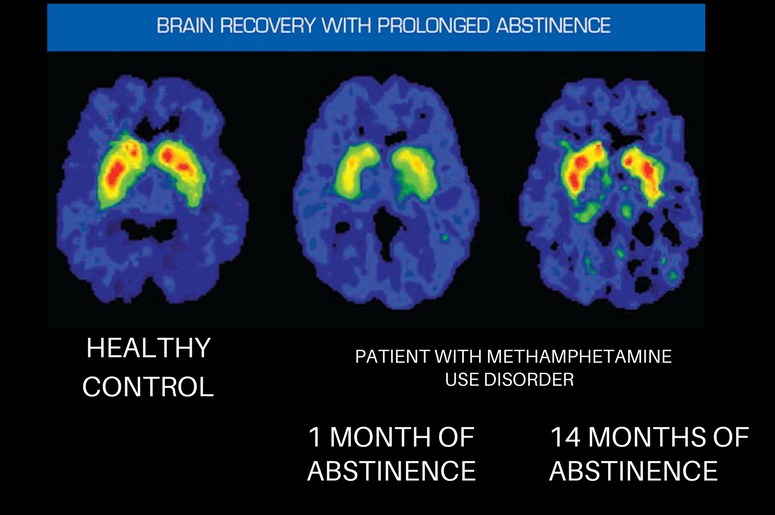They can make it harder to gain access to drugs, possibly by never ever carrying money with them. People will put obstacles in front of themselves. Real, some individuals choose they can't do it on their own and decide to enter into treatmentthat's taking matters into one's own hands, too. If you're currently in treatment, you have actually made a huge action.
You get a lot of assistance. You get direction in official regression prevention therapy. You might get methadone for withdrawal and medications for an underlying psychiatric issue. I'm vital of the basic view promoted by the National Institute on Substance abuse that addiction is a brain disease. Naturally, every habits is moderated by the brain, however the language "brain illness" carries the connotation that the afflicted individual is defenseless prior to his own brain chemistry.
It also overlooks the immensely essential fact that addicts utilize drugs to assist them cope in some manner. That, as harmful as they are, drugs also serve a purpose. This acknowledgment is very crucial for creating customized therapies. Individuals who come to treatment tend to have concurrent psychiatric disease, and they also tend to be less responsive to treatment.
This is called the "clinical impression," and it applies to all medical conditions. It describes a tendency to believe that the clients you see in a scientific setting completely represent all people with that condition. It's not real. You're not seeing the full universe of individuals. I doubt it.

The only drugs that are neurotoxic are alcohol, methamphetamine, most likely MDMA [ecstasy], and some inhalants. * Drug can result in micro strokes. That's brain damage. Yes, dependency alters the brain but this does not doom individuals to use drugs forever. The most irreversible change is memories. Some individuals have more powerful memories and they are more cue-reactive [more reactive to stimulus that activates the reward path].
For some people the dependency and withdrawal will be more extreme through genetically mediated issues. Those individuals have a harder time stopping. One would wish to explore the possibility of underlying psychiatric problems. The grandiosity, the loose associations, the jumbled circulation suggest a believed disorder. Heavy, heavy drug use could trigger that.
To try to make an excellent medical diagnosis, whatever ongoing drug use there is would need to stop. After the withdrawal stage is fixed clinicians would then require to see if an underlying thought or state of mind disorder continued. That would assist in parsing how much of a confusing medical photo is because of drug use and how much is due to a main psychological condition.

How http://jasperitnr475.yousher.com/the-facts-about-drug-addiction-occurs-when-revealed How To Cure Drug Addiction Naturally can Save You Time, Stress, and Money.
Drug abuse condition, or drug dependency, can be specified as a progressive illness that causes people to lose control of the usage of some substance regardless of intensifying repercussions of that usage. Compound usage disorder can be dangerous. Addictions are not issues of willpower or morality. Addiction is an effective and intricate illness.
The drugs change the brain in a manner that makes giving up physically and psychologically hard. Dealing with addiction frequently requires long-lasting care and treatment. Drugs that are typically misused consist of: Alcohol. Club drugs, like GHB, ketamine, MDMA (ecstasy/molly), flunitrazepam (Rohypnol). Stimulants, such as drug (including crack) and methamphetamine (meth). Hallucinogens, consisting of ayahuasca, D-lysergic acid diethylamide (LSD), peyote (mescaline), phencyclidine (PCP) and DMT.
Marijuana. Opioid discomfort killers such as heroin, fentanyl, oxycodone, hydrocodone, codeine and morphine. Prescription drugs and cold medicines. Sedatives, hypnotics and anxiolytics (anti-anxiety medications). Steroids (anabolic). Synthetic cannabinoids (K2 or Spice). Artificial cathinones (bath salts). Tobacco/nicotine and smokeless cigarettes (e-cigarettes or vaping). While these drugs are very different from each other, they all strongly trigger the dependency center of the brain.
People feel intoxicated after utilizing drugs of abuse. Over time, the brain is changed by drugs of abuse. The brain becomes desensitized to the drug of abuse so that more of the drug need to be utilized to produce the same effect. As the individual consumes more, drugs begin to take control of the person's life.
For many individuals, social, household and work obligations are up to the side. The person with SUD begins to seem like something's incorrect if he or she isn't under the influence of the compound. They may become taken in with the requirement to recapture that initial sensation. Anyone can develop a substance usage condition.
You might be more susceptible to drug usage due to: The person's hereditary makeup, gender, ethnicity and psychological health concerns may raise his/her danger for developing a dependency. About two-thirds of people in addiction treatment are men. Particular ethnicities are at greater risk for drug abuse disorder. This is true for Native Americans.
For instance, stress, peer pressure, physical or sexual assault and early direct exposure to drugs can raise the danger. Teens who start taking drugs are particularly at risk. The parts of the brain that control judgment, decisions and self-control are not fully developed. Teens are most likely to take part in risky behaviors.
What Is A 12 Step Program For Drug Addiction - Truths
Substance usage disorder and alcohol utilize disorder are the leading reasons for preventable health problem and sudden death. Research study has shown that about 1 in 9 Americans utilizes illegal drugs (about 11% of the population). The most frequently misused drugs are cannabis and prescription medications. Drugs impact the brain, specifically the "benefit center" of the brain.
Often, these rewards originate from healthy habits. When you hang out with a liked one or consume a scrumptious meal, your body releases a chemical called dopamine, which makes you feel enjoyment. It ends up being a cycle: You look for these experiences since they reward you with good feelings. Drugs of abuse send out enormous rises of dopamine through the brain, too.
That can develop an unhealthy drive to seek satisfaction from the drug and less from more healthy pleasurable experiences. The cycle revolves around looking for and taking in drugs to get that pleasurable feeling. Addiction to drugs changes the brain with time. It impacts how the brain works and even the brain's structure.
The first usage of a drug is an option. However addiction can establish, Alcohol Rehab Facility producing a very hazardous condition. Drugs impact your decision-making ability, consisting of the decision to stop drug use. You might know there's an issue but unable to stop. With addiction, stopping substance abuse can be physically uncomfortable.
Individuals might begin utilizing drugs for several reasons. They may: Take pleasure in the pleasant experience. Wish to change or blunt their undesirable feelings (who has a drug addiction problem). Wish to improve their performance at work, school or sports. Wonder or succumb to peer pressure. Signs of Drug Detox drug dependency consist of: Bloodshot eyes and looking tired.
Changes in physical appearance, such as having a bad complexion or looking ungroomed. Yearning drugs. Problem completing tasks at work, school or house. Participating in risky habits, in spite of knowing unfavorable effects (such as driving while impaired or having unguarded sex). Inability to decrease or control substance abuse. Issues with money.
Last examined by a Cleveland Clinic physician on 09/03/2020. Get helpful, useful and appropriate health + wellness info Cleveland Clinic is a non-profit scholastic medical center. Advertising on our website helps support our mission. We do not back non-Cleveland Clinic items or services. Policy.